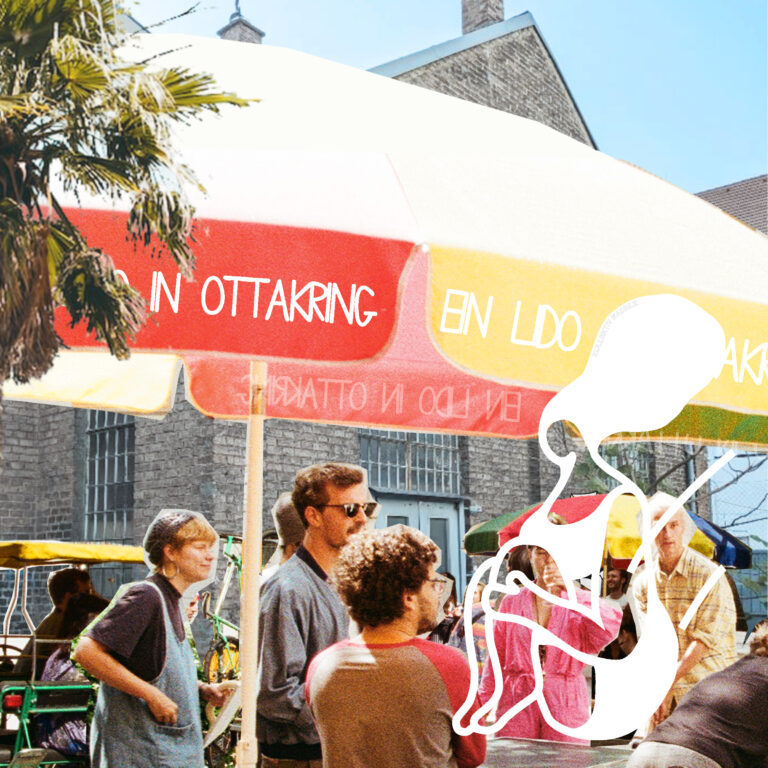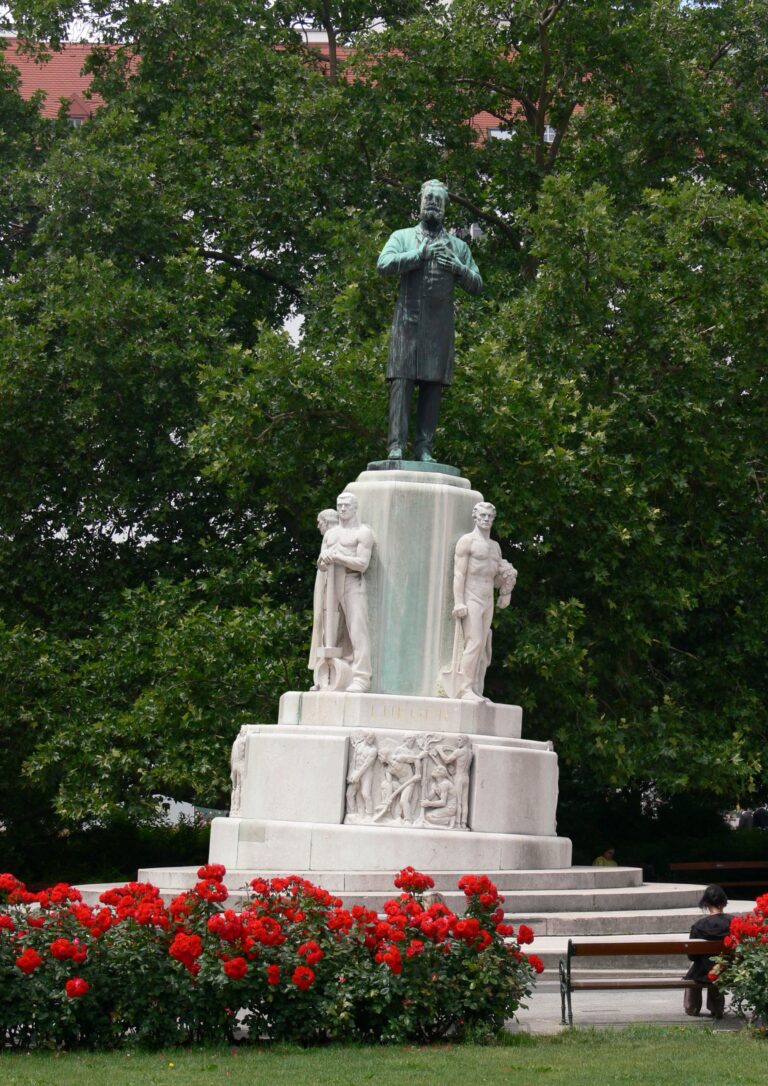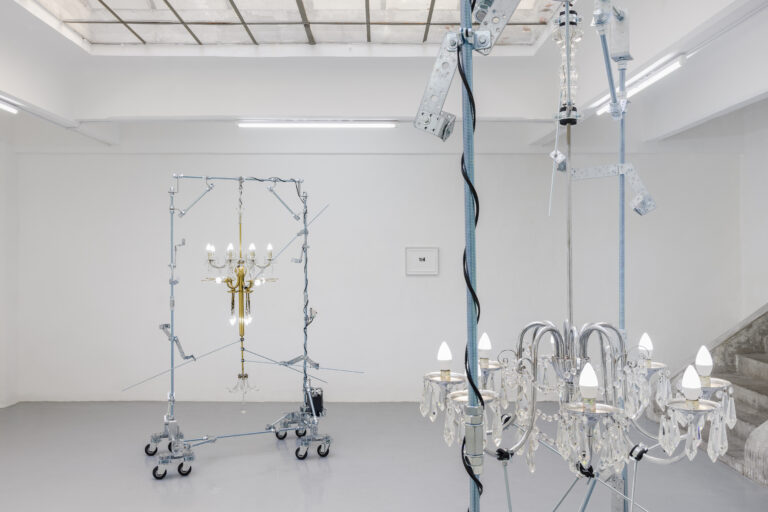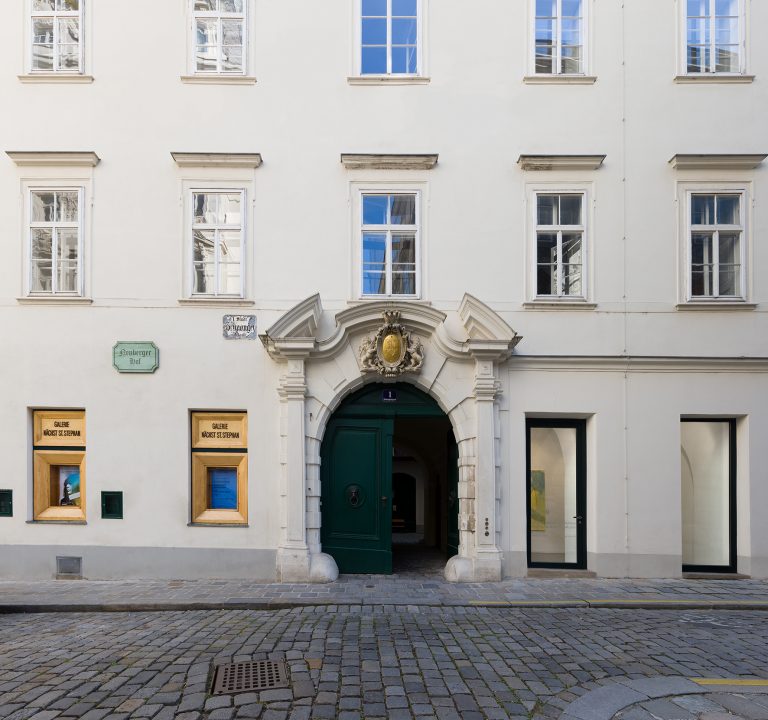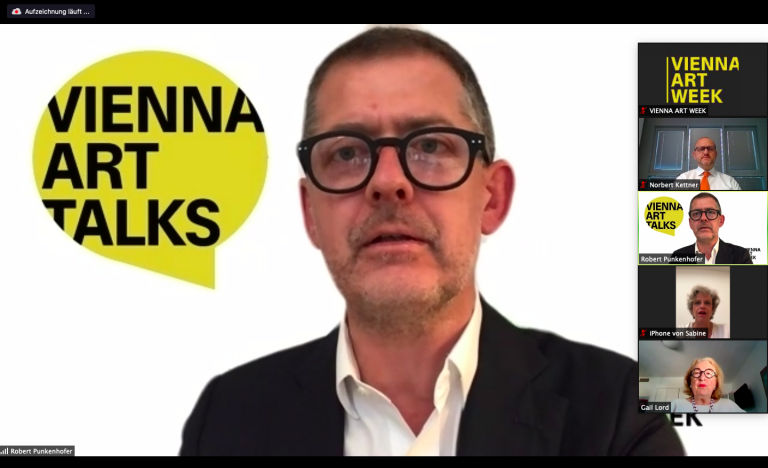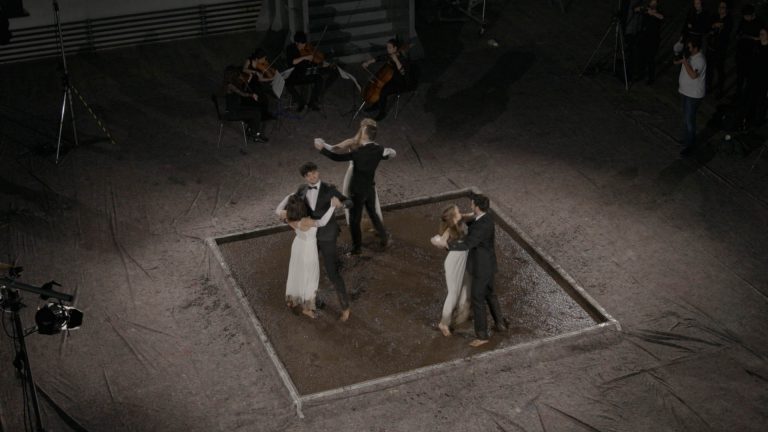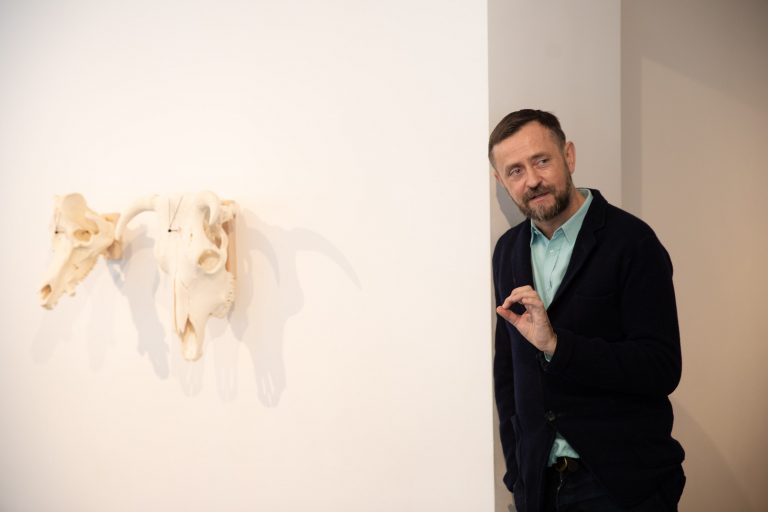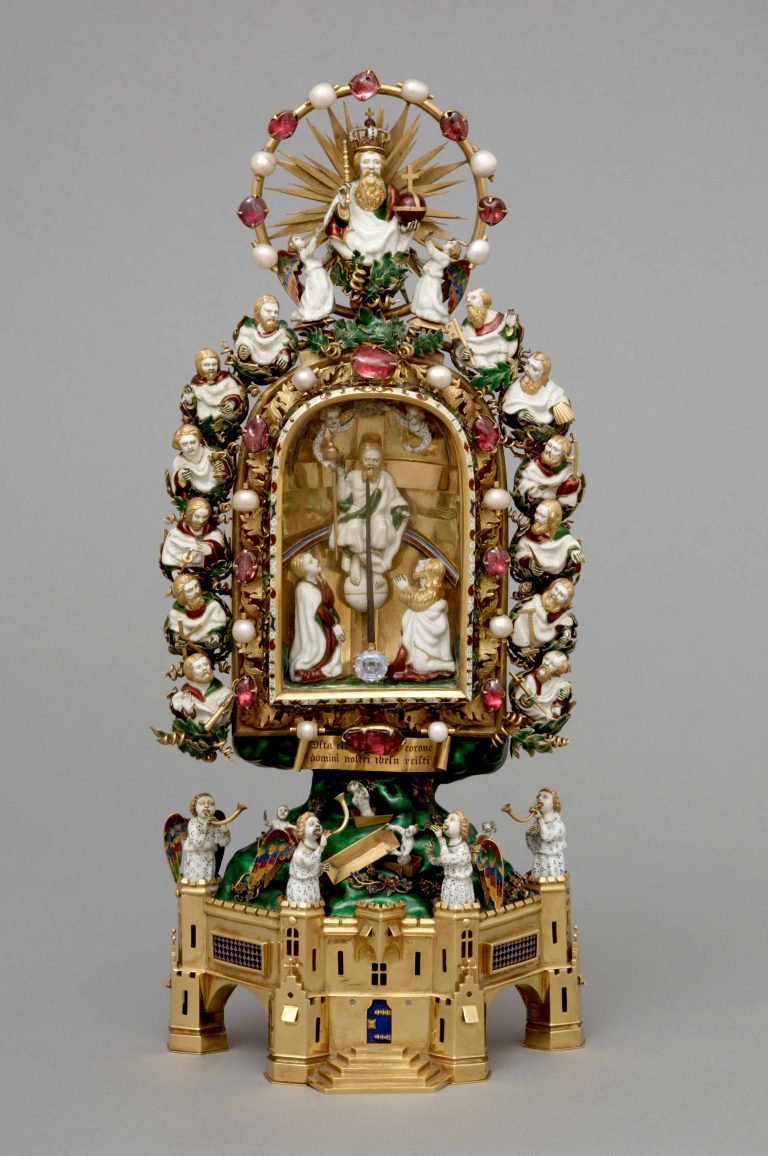Silent helpers
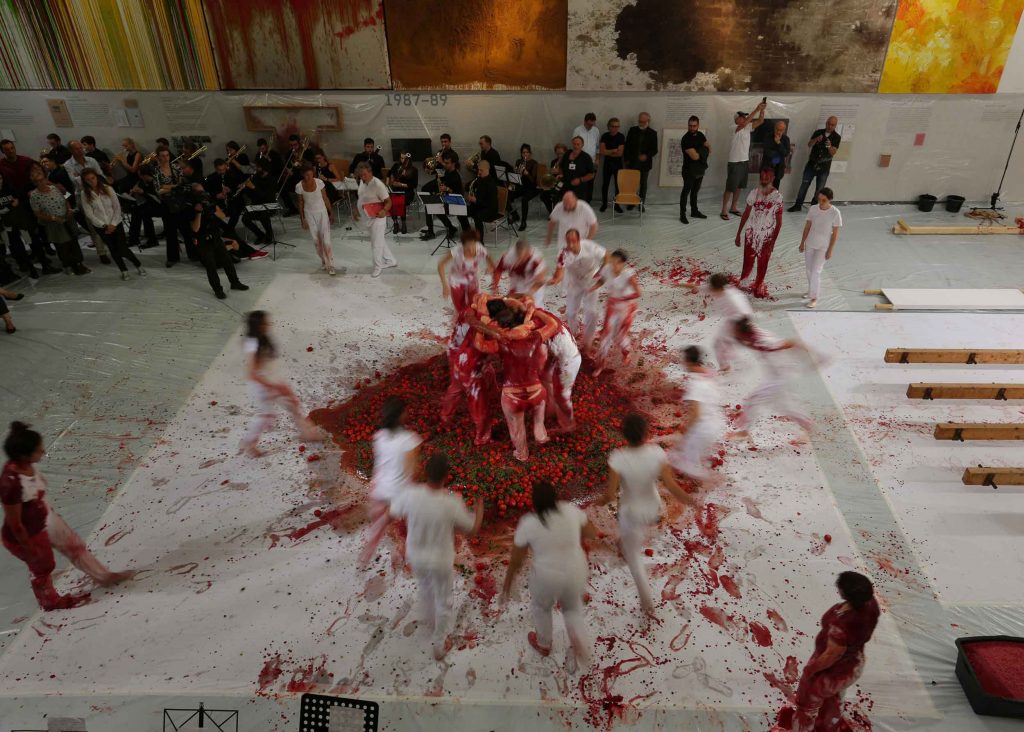
Foto: Daniel Feyerl © Hermann Nitsch
They haul bowels around by the bucket-load and allow blood to be poured over their bodies: scores of performers turn Hermann Nitsch’s actions into world-famous spectacles. How does it feel to be a part of such an action? And why would someone want to do it again and again? VIENNA ART WEEK spoke to two long-serving contributors about the thrill of blood and the transformational power of excess.
Leo Schuster remembers his first performance at the legendary 6-day-play at Hermann Nitsch’s castle in Prinzendorf, Lower Austria: “The bull was slaughtered at seven in the morning and its body suspended. I was blindfolded and tied to the cross high above the audience, feeling the heat of the freshly slaughtered cadaver on my back and the cool morning air on my chest. That was truly archaic!”
Schuster is one of the many volunteers who regularly participate in the ritual ceremonies of the Austrian actionist artist Hermann Nitsch. The actions of the artist, now in his eighties, are polarising. While his supporters celebrate their pure, archaic character, the church and animal rights activists regularly protest the blood-drenched spectacular sacrifices.
Scores of volunteers come from all over the world for an extreme experience. In the process they are pushed to their physical and emotional limits: exposed to the stench of rotting, sweat and urine, and accompanied by blaring choral singing, they rummage around in animal bowels, let blood run into their mouths and over their bodies, and hang on the cross for hours on end. Every action is preceded by weeks of intensive rehearsals until the acts have become second nature.
“This helplessness is an absolute experience of Being, almost therapeutic,” says Katrin Sturm, who has been participating regularly as a performer since 2008. “You are fully present, and you are intensely aware of the smells and music. Apart from the birth of my child, the action was the most intensive experience I have ever had.” A real animal lover, she was initially perturbed by the gory spectacle, but she wanted to see for herself instead of condemning the artist prematurely. When she visited an action for the first time, she was overcome by an overwhelming urge to join in herself. “I had to leave immediately – because I could not bear to watch without being in the thick of it.” Soon after she took part in her first 2-day-play. “For me as a city kid, the action was magical – the blood, the smell, the music, the touch – it has everything: life, food, death – the acceptance of being human,” says Sturm. As the performers, often hundreds of them, work together closely, an intense sense of community develops, emotions erupt, and excess is celebrated in the evening around a campfire with Nitsch’s home-made wine.
It would be a huge mistake to assume, however, that the performers lose themselves in a frenzy for days. “Nitsch is a control freak. He has precise aesthetic expectations for each sequence,” says Schuster. They range from detailed instructions for handcuff knots and the way that blood should run over the body to the meticulously timed, highly concentrated rummaging in the bowels. “In situations where you are lying under a 150-kilo pig, and people are rummaging around its cadaver above you, you have to be able to rely on the others one hundred percent,” explains Schuster, was part of the stage direction team. “Anyone who comes here just to spatter blood is off again immediately.”
The contributors share a huge admiration for Nitsch himself and his art. “Even when you know the sequences, you stand there in the audience and think, whoa, look how it runs and trickles and glistens,” says Leo Schuster. “It has nothing to do with our highly civilized world. Nitsch’s actions reference humanity’s stories that have been baked into our brains over millennia, and that is why they are so timeless. In 300 years, they will be exactly as powerful as today.”
After the elation of the action, there is a certain void. It seems absurd that the place where people were rummaging knee-deep in bowels just a short time ago is now in a flawless and meaningless state. Both performers are thus drawn back to the actions again and again, to the sense of community and the magical moment when “you just are.” “It is difficult to describe,” says Katrin Sturm. “I can only advise you to come along and join in.”
The next major action is a 6-day-play scheduled for 2021.

